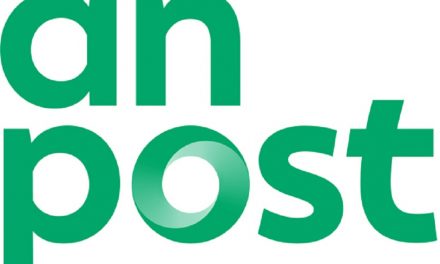
AN POST FACES TOUGH CHALLENGES AS FURTHER LIBERALISATION TAKES PLACE
Despite the development of e-mail, post remains a vital channel for business. As with any support service, commercial users are looking for quality at a competitive price.
However, for most post landing on your doormat, there is no competition. Universal service providers – usually a semi-state, state-owned or privatised former state postal company – must guarantee to provide services to all users in every town and region, whether they are profitable or not. Most have a legal monopoly on a "reserved" part of the postal market.
In the Republic, letters weighing less than 350g or costing no more than five times the price of standard letters are reserved for semi-state company An Post, while its SDS parcels and delivery service competes with local and national couriers and international express carriers such as DHL, FedEx, TNT and UPS.
Who is allowed deliver what has been the subject of a long-running debate in the EU Parliament. In October last year, the EU's Council of Telecommunications Ministers submitted to the European Parliament its two-step agreement on further liberalisation in the industry – the opening up of increased shares of the postal market to competition.
From 2003, all outgoing cross-border mail and letters weighing more than 100g (or costing more than three times the price of a standard letter) would have to be opened up to competition in EU member-states. From 2006, this would be reduced to 50g – or two-and-a-half times the price of a standard letter.
For supporters of liberalisation, the agreement has not gone far enough towards fixing a deadline for opening all of the market to competition, promising instead to review the impact on universal service in each country in 2006.
"Reducing the monopoly to letters weighing less than 50g is a much smaller step in reality than it appears, if you look at the make-up of post," says an adviser to the Irish Association of International Express Carriers, which represents the interests of DHL, FedEx, TNT and UPS in the Republic.
Most mail weighs between 10g and 20g. "You would have to reduce the weight limit to 25g to have a material impact."
But if the pace of reform is too slow for its private competitors, changes proposed earlier in 2001 which would have brought the weight limit on reserved services directly from 350g to 50g were too much too soon for An Post.
The revised two-step agreement is "acceptable", according to An post spokesman Mr John Foley.
An Post expects one-third of revenues from its letter division will be exposed to competition next year and 40 per cent from 2006.
This is still a much larger slice of the industry than in other European countries, because a higher proportion of mail in the Republic is destined to go abroad.
A spokesman for the Communications Workers' Union (CWU), which represents An Post workers, believes the legislation is designed to suit "the larger players".
"Traditionally, the margins are very tight in the industry, so there are serious implications for An Post that do spill over into the question of how they are expected to retain their universal service."
The universal service obligation, monitored by the Office of the Director of Telecommunications Regulation, acts as a safety net for users in rural areas. An Post fears new competitors, free from a universal service obligation and a requirement to fund the national regulatory authority, would cherry-pick the most commercially lucrative sectors of the business.
But Britain's Association of International Courier and Express Services does not believe changes will challenge the dominant position of universal service providers in EU member-states. It highlights Sweden, where the postal market has been fully liberalised since 1993.
Most entrants to the market have been small and medium-sized operators, one-third of which are not profitable. The Association of International Courier and Express Services says this is partly because the gap between start-ups and established services with ready-made collection, sorting and delivery infrastructures is too wide.
However, some European post offices have made it easier for themselves by buying stakes in international delivery companies: the Dutch post office bought TNT, while Deutsche Post in Germany is a major shareholder in DHL.
Irish Times











